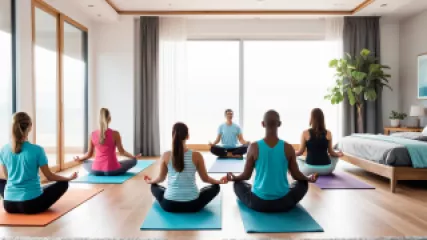Effective Strategies for Reducing Screen Time: A Research Summary
In today's digital age, screen time has become a pervasive aspect of our lives. Whether it's spending hours scrolling through social media, binge-watching our favorite shows, or constantly checking emails, our reliance on screens has skyrocketed. However, excessive screen time can have detrimental effects on our physical and mental well-being. That's why it's crucial to find effective strategies for reducing screen time and establishing healthy tech habits.
The Impact of Excessive Screen Time
Before delving into the strategies, let's explore the negative consequences of excessive screen time. Research has shown that spending extended periods in front of screens can lead to various health issues:
- Physical Health: Prolonged sitting while using screens can contribute to sedentary behavior and increase the risk of obesity, heart disease, and diabetes.
- Mental Health: Excessive screen time has been linked to anxiety, depression, and poor sleep quality. It can also negatively impact cognitive function and attention span.
- Social Relationships: Spending too much time on screens can hinder the development of meaningful relationships and lead to feelings of loneliness and isolation.
Given these adverse effects, it's essential to develop effective strategies for managing and reducing screen time.
1. Set Clear Goals and Boundaries
Start by setting clear goals and boundaries around your screen time. Determine how many hours per day you want to spend on screens and create a schedule that aligns with your priorities. Consider using apps or built-in features on your devices that allow you to set limits and receive reminders when you've reached your designated screen time.
Additionally, establish specific rules for yourself and your household. For example, designate screen-free zones, such as bedrooms or mealtime areas. Setting boundaries and sticking to them can help create a healthier relationship with technology.
2. Practice Digital Mindfulness
Digital mindfulness involves being fully present and intentional with your technology use. It's about using screens with awareness and purpose rather than mindlessly scrolling through endless content.
One way to practice digital mindfulness is by implementing regular screen breaks. Set aside dedicated time each day to engage in non-screen activities, such as reading a book, going for a walk, or spending quality time with loved ones. This break allows your mind to recharge and reduces the temptation to constantly reach for your devices.
Another aspect of digital mindfulness is being conscious of the content you consume. Consider curating your social media feeds to include positive and inspiring accounts. Unfollow or mute accounts that contribute to feelings of comparison or negativity. By actively choosing the content you engage with, you can cultivate a more positive online experience.
3. Find Alternative Activities
One of the most effective ways to reduce screen time is by finding alternative activities that capture your interest and attention. Engage in hobbies or activities that don't involve screens, such as painting, playing a musical instrument, gardening, or practicing yoga.
Physical exercise is also an excellent screen-free activity. Whether it's joining a sports team, going for a run, or attending a fitness class, regular exercise not only helps reduce screen time but also has numerous physical and mental health benefits.
4. Create Tech-Free Bedtime Routines
The blue light emitted by screens can interfere with the production of melatonin, a hormone that regulates sleep. To improve your sleep quality and reduce screen time, establish tech-free bedtime routines.
Instead of scrolling through your phone or watching TV before bed, engage in relaxing activities such as reading a book, practicing meditation, or taking a warm bath. Creating a calming routine signals to your body that it's time to wind down and prepare for sleep.
5. Seek Support and Accountability
If you find it challenging to reduce screen time on your own, don't hesitate to seek support from friends, family, or professionals. Discuss your goals with them and ask for their help in holding you accountable.
Consider joining support groups or therapy for technology addiction, where you can connect with others facing similar challenges and learn strategies for managing screen time. Working with a therapist who specializes in digital well-being can provide valuable guidance and support throughout your journey.
Conclusion
Reducing screen time is crucial for maintaining our physical and mental well-being in today's technology-driven world. By setting clear goals and boundaries, practicing digital mindfulness, finding alternative activities, creating tech-free bedtime routines, and seeking support, we can develop healthy tech habits and establish a balance between the digital and offline aspects of our lives.
Remember that reducing screen time is a gradual process, and it's essential to be patient and kind to yourself along the way. By implementing these strategies and making small changes, you can reclaim control over your screen time and prioritize your overall well-being.






